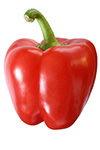Sign In Chef

By using our free meal planner (and the rest of spoonacular.com) you have to agree that you and only you are responsible for anything that happens to you because of something you have read on this site or have bought/cooked/eaten because of this site. After all, the only person who controls what you put in your mouth is you, right?
Spoonacular is a recipe search engine that sources recipes from across the web. We do our best to find recipes suitable for many diets — whether vegetarian, vegan, gluten free, dairy free, etc. — but we cannot guarantee that a recipe's ingredients are safe for your diet. Always read ingredient lists from the original source (follow the link from the "Instructions" field) in case an ingredient has been incorrectly extracted from the original source or has been labeled incorrectly in any way. Moreover, it is important that you always read the labels on every product you buy to see if the product could cause an allergic reaction or if it conflicts with your personal or religious beliefs. If you are still not sure after reading the label, contact the manufacturer.
We also attempt to estimate the cost and calculate the nutritional information for the recipes found on our site. Again, we cannot guarantee the accuracy of this information. Additionally, our nutrition visualizer that suggests that you limit sodium, sugar, etc., and get enough protein, vitamins, and minerals is not intended as medical advice. Similarly, our health tips are based on articles we have read from various sources across the web, and are not based on any medical training. The team behind spoonacular does not possess any medical qualifications and the information may be found to be incorrect or out of date based on future research. If you need help planning your diet or determining which foods (and recipes) are safe for you, contact a registered dietitian, allergist, or another medical professional.
Spoonacular is not responsible for any adverse effects or damages that occur because of your use of the website or any information it provides (e.g. after cooking/consuming a recipe on spoonacular.com or on any of the sites we link to, after reading information from articles or shared via social media, etc.)
×$3.39 per serving

2 likes

Ready in 25 minutes

Spoonacular Score: 81%
Chicken and Spring Mix Salad with Spicy Pineapple Dressing requires about 25 minutes from start to finish. This recipe serves 2. For $3.39 per serving, this recipe covers 31% of your daily requirements of vitamins and minerals. Watching your figure? This gluten free, dairy free, paleolithic, and primal recipe has 348 calories, 38g of protein, and 12g of fat per serving. 2 people were glad they tried this recipe. If you have onion, garlic powder, chicken breast halves, and a few other ingredients on hand, you can make it. Spring will be even more special with this recipe. It works well as a main course. It is brought to you by Foodista. All things considered, we decided this recipe deserves a spoonacular score of 79%. This score is solid. Users who liked this recipe also liked Grilled Chicken Salad with Spicy Pineapple Dressing, Grilled Chicken Salad With Spicy Pineapple Dressing, and Grilled Chicken and Spinach Salad with Spicy Pineapple Dressing.
Chardonnay, Sauvignon Blanc, and Gruener Veltliner are my top picks for Salad. Sauvignon Blanc and Gruner Veltliner both have herby notes that complement salads with enough acid to match tart vinaigrettes, while a Chardonnay can be a good pick for creamy salad dressings. The Talbott Vineyards Kali Hart Chardonnay with a 5 out of 5 star rating seems like a good match. It costs about 27 dollars per bottle.
 A pure fruit expression of our vineyard, Talbott Chardonnay, Kali Hart is lush and lively. Minimal winemaker influence allows Kali Hart Chardonnay to showcases the strength of Talbott's estate vineyards. The rich, inviting nose shows bright tropical notes that continue on the palate, where refreshing flavors of pineapple and honeydew are complimented by refreshing acidity. A generous mid-palate leads to a long citrus and tropical fruit finish with hints of French oak and minerality.
A pure fruit expression of our vineyard, Talbott Chardonnay, Kali Hart is lush and lively. Minimal winemaker influence allows Kali Hart Chardonnay to showcases the strength of Talbott's estate vineyards. The rich, inviting nose shows bright tropical notes that continue on the palate, where refreshing flavors of pineapple and honeydew are complimented by refreshing acidity. A generous mid-palate leads to a long citrus and tropical fruit finish with hints of French oak and minerality.
» Get this wine on Amazon.com
































Read the detailed instructions on Foodista.com – The Cooking Encyclopedia Everyone Can Edit